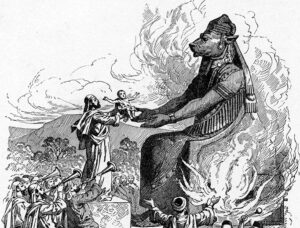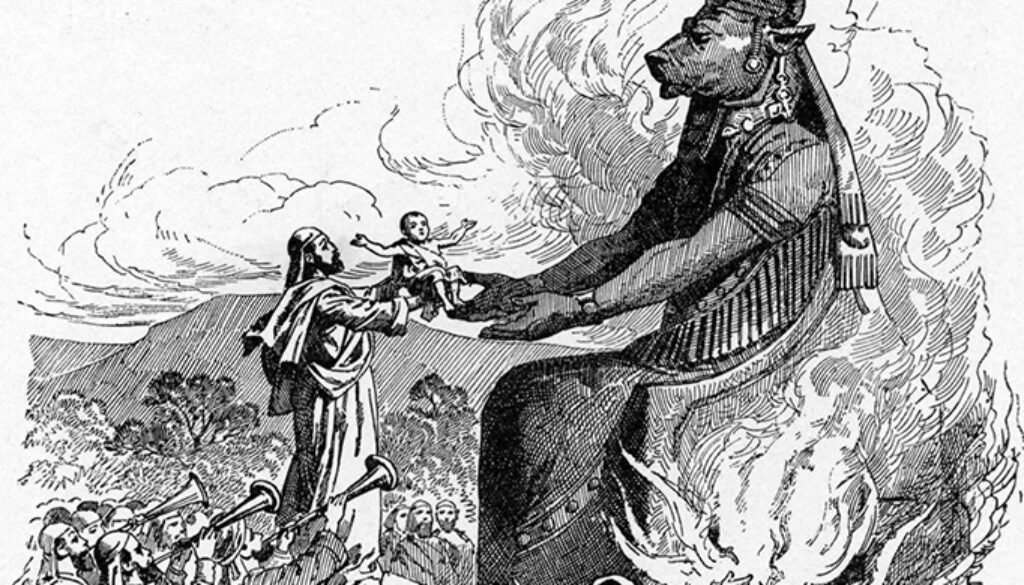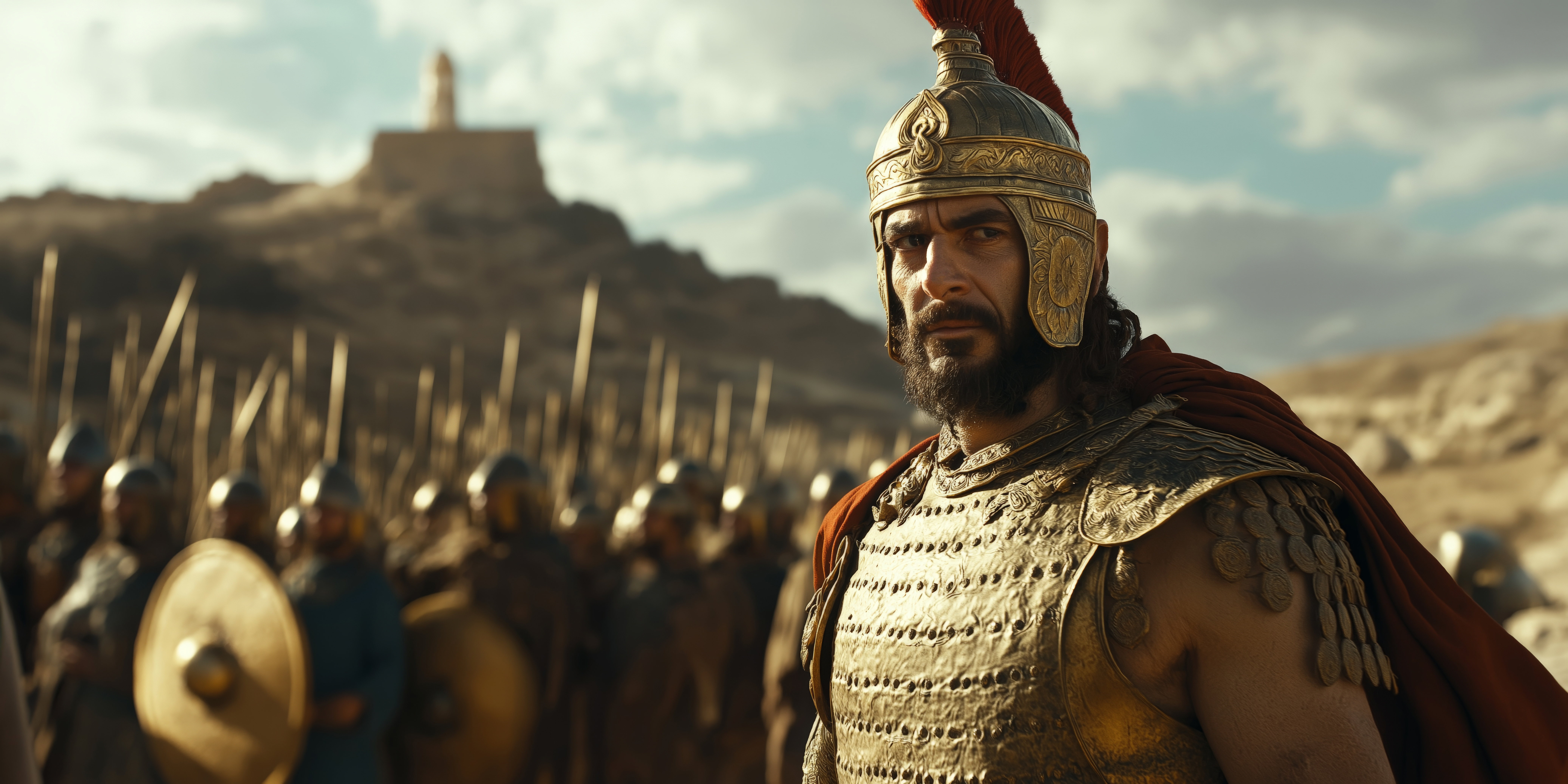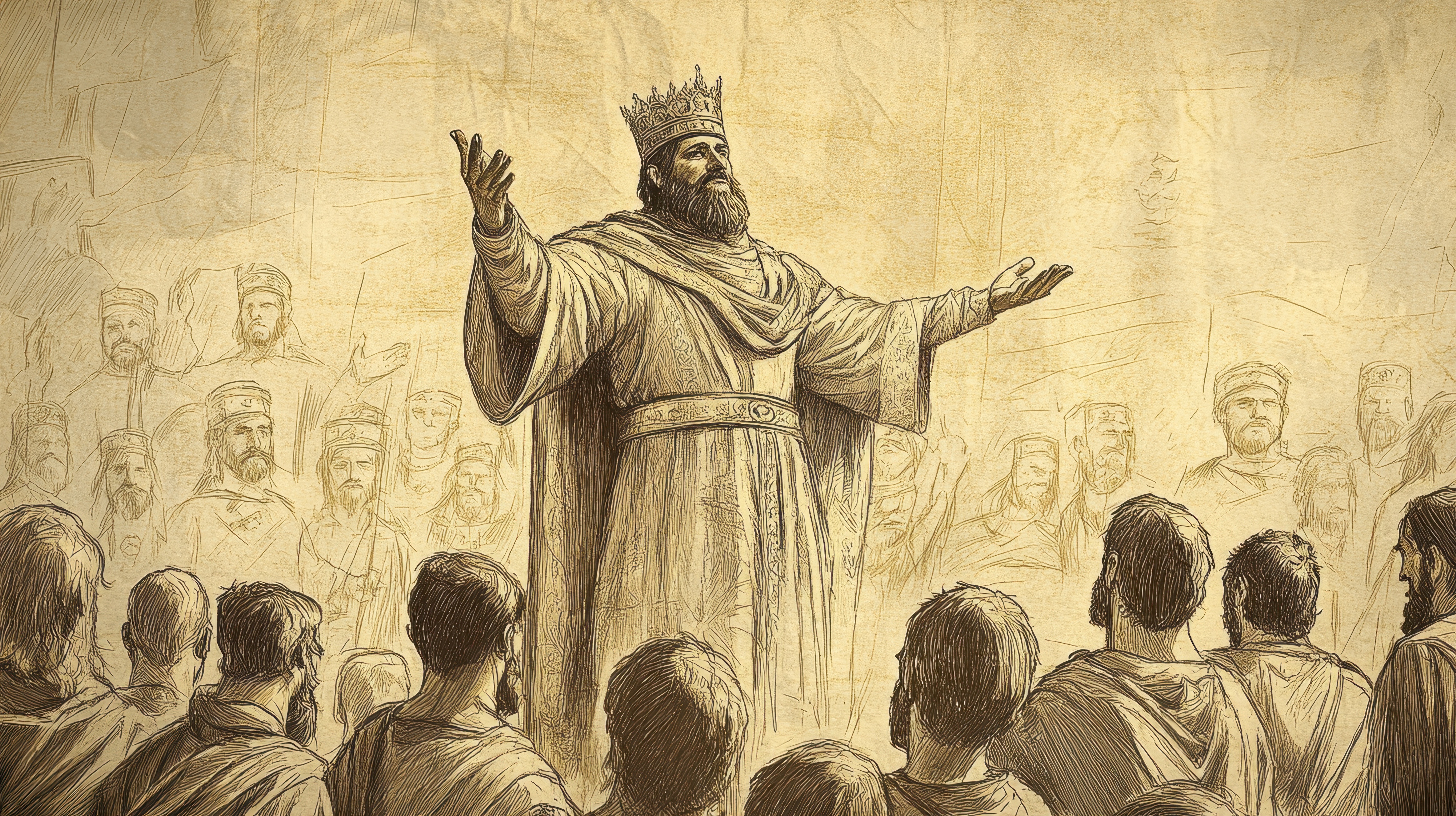2 Kings 16 Ahaz of Judah

Ahaz of Judah was a horrible king. He turned away from the Lord as fully as any king had. He even closed the House of the Lord.
King Ahaz is the first king mentioned who sacrificed his own son in an offering to the gods of the people around him. His actions did not go unnoticed. He served many other gods, including seeing an altar to another god that he had replicated and placed in the House of the Lord. And God DIDN’T smoke him where he stood. Let’s join in the journey again and see where the Spirit takes us today.
♥ ♦ ♥
Ahaz is standing in his new throne room gazing out the window. He is relishing all the power that has just been bestowed upon him. The right to do anything he so chooses. The final word in ALL decisions. And the director of Judah’s path for the rest of his life.
One thing Ahaz is extremely happy about is that he does NOT have to be confined by the laws of the Lord. As king, he can do as he pleases.
Ahaz is self-centered. He looks to his own pleasure in all things. If someone or something is in the way of fulfilling his wants, he does away with it. He knows that there are some things that he has no way around, but he will put his ‘stamp’ on them. One of those things is judging between the people. He has already decided that he will rule as HE chooses, and a side bribe is not beneath him in helping him make his decision.
The first three months of Ahaz’s rule run smoothly, in his opinion. The people have already figured out that his decisions can be bought. He has made a tidy sum. He has commissioned several images be made from the gold and silver he has amassed. An altar to Baal has been rebuilt and consecrated to his worship. It is on the same plot of land that Athaliah had her altar erected on. Construction is also underway on a special altar in the Valley of the Son of Hinnom to Moloch. He has a special dedication in mind for this altar.
Ahaz’s fourth wife is ready to give birth to their first child. He has two older sons, but this is his first one with this wife and after becoming king. He is waiting for this child to arrive with great anticipation. “When the child is born, I want to know immediately” he tells his servants.
The time arrives and Ahaz’s wife labors greatly to deliver this child. “It is a boy” the midwife announces.
His mother slumps back against her servant who had been supporting her during her labor. Tears well in her eyes. “A son. Ahaz will be so pleased” she breathes.
Word is sent to the king immediately. It is not yet light when the pounding on the door of the king’s chambers rings out. His personal servant quickly answers it before it can disturb his master. “What is it? Do you not know the hour? And how the king hates being disturbed in the night?”
“A thousand pardons my master’s servant. But our master instructed that he was to be notified as soon as his child was born. His wife just brought forth a son for our master.”
“I will tell him right away. Thank you for bringing this news.”
Ahaz’s servant closes the door quietly. He does not intend to wake his master. He is NOT an easy man, even on the best of days. On a day where his sleep is interrupted would NOT be a ‘best day’ for him. Unfortunately for him, the king has already woken from his sleep as the sound of voices in the hallway. Ahaz waits until he hears his servant’s footfalls before calling out to him.
“What was the news you were discussing?”
Ahaz’s servant is startled at the voice and lets out a small yelp. He quickly begs forgiveness. “I am sorry, my king. I did not realize you were awake.”
“How could I not be with all that commotion in the hallway. Now tell me the news that roused me from my slumber.”
“Your wife has just born you a son, my king. The servant said that you wanted to know right away once the child was born.”
“I did. And were you planning on telling me now, or waiting until it was morning?”
Ahaz’s servant doesn’t know how to answer that question. If he says that he would have told him right away, the king might be angry about him disturbing his sleep. If he waited, the king might be angry because he waited. There was no safe way to answer this question. “I gave you the information right away, my king. Just as you instructed.”
Satisfied, the king calls for his dressing gown. As soon as he is decently dressed, he goes to the room where his wife lies with the child. None deny him entry and he walks over to where his wife lies, nursing his youngest son.
“Give him to me” he demands.
“Sire, he is nursing. It would be better for the child and its mother if you came back a little later” says the midwife.
Ahaz turns to her and silences her with a look. “I didn’t ask about ‘convenience’. I want to examine my son now” barks the king.
His wife quickly removes her breast from the child’s mouth and hands her son to the king. Ahaz examines the child’s body for signs of defect or blemishes. Finding none, he nods and hands him back. Then he turns and leaves the room. Everyone else in the room looks at one another with puzzlement.
One of the servants wonders out loud. “What was that all about?”
No one else offered any comments or answers to the question that hung in the air. Ahaz’s wife has a feeling that she is NOT going to like the answer to that question.
On the third day of the child’s life, Ahaz again goes to his wife’s room. When he enters, he demands; “Give me the child.”
The tone of his voice says that he is not willing to wait. The mother gives her son a soft kiss on his forehead before handing him to the king. The king examines him once again. Finding no blemish or mark, he turns with the infant and leaves the room. The mother hurries from her bed and follows the king.
“Where are you taking him” she cries after the king.
“He will be the dedication offering to my god” the king says without an ounce of regret or hesitation in his voice.
The mother is nearly knocked to the ground at his words but stumbles after the king pleading with his back. The king doesn’t slow down, nor does he look back and acknowledge the child’s mother. When he tires of her following him and crying out, he issues orders to his servants.
“Take her to her room and lock her in. I am tired of hearing he voice.”
The mother is taken to her room and the door bolted from the outside. Her cries echo through the palace as she pounds upon her door.
Ahaz takes the child and places him in a basket. He then carries this basket out the door and down the path to his new altar. The Valley of the Son of Hinnom is strewn with refuse. It is a place covered in garbage, sewage, flies, and filth. It is a place where fires burn daily to destroy the buildup, lest it overtake the city. It is the place where the altar to Moloch has been built to the king’s specifications. The seated bull like man with a hole in his stomach where the offerings are to be offered. Ahaz has the ‘privilege’ of making that first offering on this altar.
Those intent on worshiping Moloch with the king follow him through the valley, picking their way through the refuse to the base of the statue. The child of the king wails within his basket; calling out for his mother or any human kindness. He finds none. His cries are like honey to the depraved worshipers. They know what is coming and they chant and cheer along the way.
At the foot of the stairs to the altar, the king sets the basket down. Drummers take up their places. Slowly the rhythm of the drums mount until their speed is like the beating of the heart, hammering within the chest of the infant. The priest climbs the stairs ahead of Ahaz and ignites the fire. He turns to Ahaz, who reaches down into the basket and lifts the wailing infant into his hands. He does not cradle him against his chest or try and sooth his crying. He holds him aloft for all to see.
Screams of ecstasy erupt from the crowd as the king presents his son. Ahaz ascends the stairs and stands between the hands of his god. He raises the child one more time, then tosses him into the center of the idol where the fire burns. He watches his child as he screams in pain and then becomes quiet as the life leaves him. At that point, Ahaz turns to face the people, with his hands raised high. “Bless me O Moloch for this offering I have given you!”
There are other children offered that day and similar prayers made. The toll is high and the altar is filled with charred bones. Once the fire dies, these bones are taken from the altar and added to the refuse lying on the ground, another layer to be trod upon by the worshipers of this god.
The Lord in Heaven sees EVERY life given that day. His heart breaks at every cry. He is disgusted, angry, and grieved all at the same time. “So it begins” He says.
The very next day, trouble begins for Judah. Her enemies, and even some who were allies under Jotham, begin attacking him. And God does NOT stand with the army of Judah.
The first ones to line up and face Ahaz are Rezin king of Syria and Pekah the son of Remaliah, king of Israel. They go straight for Jerusalem; the heart of Judah. Even though God was not fighting for Judah, He fought for the city that held His name. Rezin and Pekah could not capture Ahaz or the city of Jerusalem. The press against Jerusalem continues for several years. Not a full-fledged blockade, but a constant presence.
While Israel and Syria are attacking Jerusalem, the Philistines are taking back the cities that Jotham had taken during his reign. They make raids on “the cities in the Shephelah and the Negeb of Judah, and had taken Beth-shemesh, Aijalon, Gederoth, Soco with its villages, Timnah with its villages, and Gimzo with its villages” (2 Chronicles 28:18). The people of Judah are pushed out, killed, or enslaved to the new occupants of the cities.
After three years of keeping a presence in Judah, Rezin and Pekah decide to pull out all the stops. They gather all their forces as one to besiege Jerusalem. Ahaz pulls all his men from other conflicts to stand for Jerusalem.
All the armies are gathered and facing one another. Numbers on both sides of the battlefield are huge. As Ahaz looks out on the opposition forces his heart falls to the pit of his stomach. His men are no match for what he is facing. “We need help NOW” Ahaz tells his servant.
“Where will you turn?”
“We will turn to Tiglath-pileser king of Assyria. Send me a scribe.”
A scribe appeared at Ahaz side in moments. “Take this down to Tiglath-pileser king of Assyria. ‘I am your servant and your son. Come up and rescue me from the hand of the king of Syria and from the hand of the king of Israel, who are attacking me’ (2 Kings 16:7).” Ahaz walked away from the window with determination in his steps. “Have this ready for me within the hour. I will have a tribute prepared for him.”
Ahaz hurries to the Temple. He takes all the silver and gold from the Temple and then makes his way to the treasury of the kings. He takes silver and gold from there as well. When the scribe returns with the message copied for him, he looks it over and then seals it with his signet ring. “Call a runner for me. The fastest we have.”
The runner comes to stand before Ahaz. “Take this”, Ahaz hands him the bags filled with coins, “and this to Tiglath-pilesser, king of Assyria.”
The runner cannot hold all the bags the king has filled. “My king, I cannot run while carrying so much weight.”
“Then take others with you. Enough to carry the tribute and the letter safely to its destination.”
Seven runners sneak out the back gates of Jerusalem and make their way to Damascus as quickly as they can. While they are underway, Rezin and Pekah decide they have waited long enough. With the sunrise the next morning, the trumpets of war sound.
Israel and Syria rush headlong onto the battle field. Judah rushes to meet them. Swords clash and men cry out in pain. Israel and Syria move through Judah as swiftly as if they were crossing a brook. They still cannot take Jerusalem but 120,000 valiant men of Judah lay dead on the battlefield. “Zichri, a mighty man of Ephraim, killed Maaseiah the king’s son and Azrikam the commander of the palace and Elkanah the next in authority to the king” (2 Chronicles 28:7).
Ahaz is beside himself with fear! He calls to his servant; “Ready a fast horse. I ride to Assyria myself.”
Ahaz sneaks out in the night on his way to Assyria. A sentry sees him but is not fast enough to stop him. He wants to report this to the commander, but he is afraid of leaving his post, lest something more happen. When his relief arrives, he hurries to the commander’s tent.
“My lord, I have news to report.”
“Come in. Let me hear your news.”
“Someone fled out the back gate of Judah during my watch. I tried to catch him but I was not fast enough. I fear that it was the king, Ahaz.”
His commander gives him a scowl. “Why would you believe it was the king?”
“Because he was on the king’s horse. It had the armament of the king protecting it.”
The commander jumps to his feet. “When was this? Is he still nearby?”
“It was two hours ago my lord. I could not leave my post until my replacement came.”
“Did you call out for a replacement?”
“No my lord. I did not want to give away my position.”
The commander scrubs his face and forehead with the palm of his hand in frustration. This man is a new recruit. He didn’t know any better. And, he didn’t know how he could have prevented the escape of the king, had he acted sooner.
“What’s done is done. Report to your tent for some rest.”
The commander makes his way to the tents of the kings. “My lords, I have news of utmost importance.”
The commander is beckoned into the tent where the kings are sitting. “Speak” orders Pekah.
“One of the sentries reports that the king, or someone riding his horse, has escaped out the back gate of Jerusalem. He tried to apprehend him, but he got away.”
“Send someone after him” demands Rezin.
“It is too late, my lords. The sentry was young. He did not bring me word until he was relieved. The escape happened over two hours ago.”
“What good is sacking the city of Jerusalem when the king himself has fled from it. Let us return the way we came and deal with him another day.”
“I, and a contingent of men, will remain here to ensure that none of the army of Judah follow you as you return home. The rest of the army will be at your side” offers the commander.
The plan is agreed upon and implemented the next day. The kings make their way back to their own countries while a contingent of Israel stays behind. They will follow later, when it is clear that the men of Judah will not follow the kings.
Tiglath-pileser receives Ahaz’s message. He is intrigued by Ahaz’s plea but not impressed by his tribute. There is also no love loss between Assyria and Syria. Tiglath-pileser decides to help a little.
As Rezin is making his way home to Damascus, Tiglath-pileser meets him there with his army. They meet as enemies. Tiglath-pileser makes short work of the Syrian army and kills King Rezin in the process. Tiglath-pileser takes the city of Damascus for his own. Ahaz is just in time to watch the execution of Rezin, king of Syria.
Ahaz is pleased to meet up with Tiglath-pileser, and more than pleased to know that Syria will no longer be plaguing him. Tiglath-pileser invites Ahaz to stay a while and enjoy the fruits of Damascus. As Ahaz is enjoying Damascus, Tiglath-pileser is making plans to attach Israel.
While moving about the streets of Damascus, Ahaz sees and altar that speaks to his heart. It is for one of the gods of Syria. “Because the gods of the kings of Syria helped them, I will sacrifice to them that they may help me” (2 Chronicles 28:23), reasons Ahaz.
Ahaz is an accomplished artist. He is able to sketch the altar in exacting detail and perfectly to scale. He carefully packages his sketches and sends them back to Jerusalem to Uriah the priest. “Build me this altar at once. It is to take the place of the one that is currently in the Temple. Have it ready when I return form Damascus in a month.”
Uriah receives the drawings and begins construction right away. It is built by the best metal smiths, stone masons, and carpenters Judah has to offer. They are finished with it in the specified time.
While Ahaz and Uriah are busy worrying about the altar, the contingent of Israel’s soldiers who remained behind are ready to return home. But they are not going away empty handed. On the way to Samaria, they attack several towns. They take the 200,000 women, sons, and daughters captive. The men they kill on their way. They also take a great amount of spoils from their victories.
As they neared the city of Samaria, Oded, a prophet of the Lord came out to meet the army. “Behold, because the Lord, the God of your fathers, was angry with Judah, he gave them into your hand, but you have killed them in a rage that has reached up to heaven. And now you intend to subjugate the people of Judah and Jerusalem, male and female, as your slaves. Have you not sins of your own against the Lord your God? Now hear me, and send back the captives from your relatives whom you have taken, for the fierce wrath of the Lord is upon you” (2 Chronicles 28:9-11).
Those who had taken the captives were ready to ignore Oded’s words. Then several of the chiefs stood against them. “Azariah the son of Johanan, Berechiah the son of Meshillemoth, Jehizkiah the son of Shallum, and Amasa the son of Hadlai” (2 Chronicles 28:12) by name.
“You shall not bring the captives in here, for you propose to bring upon us guilt against the Lord in addition to our present sins and guilt. For our guilt is already great, and there is fierce wrath against Israel” (2 Chronicles 28:13) demanded the chiefs.
The men of Israel bowed to their commanders. They left the captives and all the spoil at the feet of their chiefs. The chiefs then went through the captives finding all those in need. From the spoils, they clothed the naked, put sandals on their feet, gave them food and water, anointed their heads and put all who were feeble on donkeys. They led the entire group to the city of Jericho where they left them in the hands of their kinsmen. After having done this, they returned to Samaria.
When Ahaz returns from Damascus, he finds the altar waiting for him. It is exactly like the one he had seen. He gathers several offerings to bring to it. He brings them into the House of the Lord, climbs the steps of his new altar, and begins offering them to the gods of Syria. He “burned his burnt offering and his grain offering and poured his drink offering and threw the blood of his peace offerings on the altar” (2 Kings 16:13).
Ahaz comes down from his altar and sees that his altar is blocked from direct view of the Holy Temple. “Move the bronze altar to the north side of the great altar. This altar should have prominence.”
He watched as slaves are rounded up and brought in to move the massive Bronze Altar. Ahaz is not willing to wait and watch it being moved but he has instructions for Oded once the altars are arranged to his specifications.
“On the great altar burn the morning burnt offering and the evening grain offering and the king’s burnt offering and his grain offering, with the burnt offering of all the people of the land, and their grain offering and their drink offering. And throw on it all the blood of the burnt offering and all the blood of the sacrifice, but the bronze altar shall be for me to inquire by” (2 Kings 16:15).
This becomes the order of things for the Temple that very evening. And God is NOT happy. Ahaz further angers the Lord when he “cut off the frames of the stands and removed the basin from them, and he took down the sea from off the bronze oxen that were under it and put it on a stone pedestal. And the covered way for the Sabbath that had been built inside the house and the outer entrance for the king he caused to go around the house of the Lord, because of the king of Assyria” (2 Kings 16:17-18). Ahaz also boarded up the Holy Temple so no one could go in to the Lord’s presence. His actions caused the lights to go out, the incense to fade and the bread to mold in its place.
Instead of things improving for Ahaz, things continued to go even worse. The more he desecrated the House of the Lord, and the more high places he builds to other gods, the more nations come against him. Tiglath-pileser even begins taking cities from Judah. Ahaz has no way to refuse him, as he is now his vassal king. Upon the death of Tiglath-pileser, his son, Shalmaneser V, uses Judah as a staging ground for his attacks on Israel.
King Ahaz stands before his altar one morning, preparing to offer again sacrifices to the god of Syria. As he begins to climb the stairs, his knees buckle and he falls on the stairs. His body rolls down the stairs and lies dead at the foot of his altar. He is taken up right away and prepared for burial.
The people rise as one and refuse to allow him to be buried with the other kings. “He has no place among the honored dead.” He is buried instead in a tomb in the city of David with the other kings who were considered unworthy. His son Hezekiah takes his place on the throne.
(to be continued)
When I was doing a search to find out where the Valley of the Son of Hinnom was, I came across a YouTube video that went into detail of what the valley was used for and like in the days of the Old Testament. The Spirit took my imagination through that scene in a way I never expected. The scene reminds me of Hell itself. I could see the fires burning and smell the sulphur as I followed along, observing the king on his path.
Trying to harmonize the timelines between 2 Kings 16 and 2 Chronicles 28 was a challenge, to say the least. I cannot be certain that I even succeeded in placing events in the correct order. What I can say is that Ahaz was a HORRIBLE king and deserved to be struck dead. But, he too is part of God’s tapestry and a thread that, woven together brings us to the place where Jesus enters into the story. And it is part of the pieces being woven together today. God KNOWS what He is doing, even when it looks completely contrary to our natural eye.
Knowing that God used even Ahaz in His plan gives me hope for the leaders we have today. I don’t know if they are the ‘horrible threads’ or the ‘semi-strange’ ones. I am not being political, but I DO NOT like the way the whole world is going today. But then I remember that it has to get HORRIBLE before Jesus’ return. Revelation and Daniel tell us this. So the tapestry of today may already have the threads of the end times ready to be introduced into the design. That means the rapture of the church is just around the corner.
Father God, I am SO GLAD I didn’t live in Ahaz’s day! I cannot imagine people burning their children alive to appease some make-believe deity. Today, children are sacrificed on the altar of ‘convenience’. To the gods of ‘absolute control’ of the woman’s body.
Father God, PLEASE show me what You want me to do in this world. How I am to stand against the evil that is as prevalent as water. Let me be a voice, calling out in the darkness, directing others into the light. I pray that the stories You share with me will bring others to a deeper relationship with You. That they would cross boundaries into lives that might not pick up a bible but pick up Your stories and find themselves drawn into them and into relationship with You.




